Horasis Extraordinary Meeting
Digital Event, 1 October 2020. Unite. Inspire. Create.
Horasis held its first digital Extraordinary Meeting on 1st October 2020 with the theme of Unite. Inspire. Create. The meeting brought together heads of state, prime ministers and other government representatives as well as CEOs and entrepreneurs from around the world. 900 speakers contributed to the discussion of themes spanning politics, business and civil society across 150 sessions – the largest online meeting held by any organisation so far.
Formally opening the meeting, António Guterres, Secretary-General of the United Nations opened his address by stating that the COVID-19 pandemic is the greatest global test since the founding of the United Nations. It has devastated lives, economies and communities everywhere and undermined the UN efforts to achieve the Sustainable Development Goals. This pandemic has to be resolved for us all to concentrate on globally important issues like the SDGs, climate change; and as nations rebuild their economies devastated by COVID they must address gender equality and diversity in all its forms.
 |
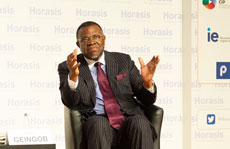 |
| António Guterres, Secretary General of the United Nations |
Hage Geingob, President of Namibia |
The Co-Chairs were:
 |
Ibukun Awosika, Chairman, First Bank of Nigeria, Nigeria |
 |
Richard Branson, Founder, Virgin Group, United Kingdom |
 |
Andrew Forrest, Founder, The Metal Group, Australia |
 |
Roshni Nadar Malhotra, Chairperson, HCL Technologies, India |
 |
Hank McKinnell, Chairman, Moody’s, USA |
 |
Michelle Nunn, President and Chief Executive Officer, CARE, USA |
 |
Sally Ann Ranney, President, American Renewable Energy Institute., USA |
 |
Martin Richenhagen, Chairman, President and CEO, AGCO, USA |
 |
Hans Vestberg, Chief Executive Officer, Verizon Communications, USA |
Fabrizio Hochschild, Under-Secretary General, Special Adviser on Preparations for 75th United Nations Anniversary, United Nations, USA opened a Horasis panel “Celebrating UN 75 – Multilateralism in Times of COVID” noting that COVID-19, climate change, social inequalities and geopolitical tensions and digital technologies are pressing upon all nations. In this panel, Armen Sarkissian, President of Armenia, Armenia, as a former scientist, suggesting the UN ought to have been recognised already by several Nobel prizes, but dialogues are of vital importance especially recognising global dynamics and cyber-threats are much more important than formerly. He posed the useful potential for a ‘Club of Small Nations’ to act as a fulcrum in many global discussions. Supporting these ideas, Mukhtar Tileuberdi, Minister of Foreign Affairs, Kazakhstan outlined how Kazakhstan has hosted several peace initiatives across Central Asia, and globally.
Continuing with this theme, Sanda Ojiambo, Executive Director, United Nations Global Compact, USA called for full disclosure of sustainability policies and practices thus committing businesses to sustainability and a shared responsibility for achieving a better world. She was supported by Munir Akram, President, United Nations Economic and Social Council, USA who noted “urgent debt relief and adequate finance is essential to enable developing countries to respond to the COVID crisis.”
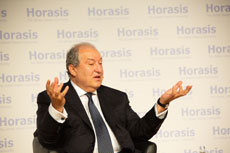 |
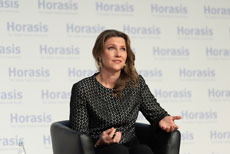 |
| Armen Sarkissian, President of Armenia |
Princess Märtha Louise of Norway |
Michelle Bachelet, United Nations High Commissioner for Human Rights, Switzerland further emphasised the need to overcome COVID and to regenerate support for inequality across the globe. In vulnerable societies this must arise from strong social protection of all individuals, especially women and children who are often the most deprived. This urgency was noted by Hage G. Geingob, President of Namibia, Namibia as his nation is struggling to reverse the strong legacy of apartheid that formally ended in neighbouring South Africa in 1994. Petteri Taalas, Secretary-General, World Meteorological Organization, Switzerland is clear: the COVID pandemic and lock downs have made cities appear clean: but what will occur on the resumption of commerce? “We must not be driven to despair, given that reasonable, consensus-based solutions are available to the international community, governments and civil society. We need a “Do” movement, not a “Talk” movement. This is our common goal.”
In panels debating South America, Juan Guaidó, Interim President of Venezuela, President of the National Assembly of Venezuela, Venezuela emphasised that throughout the world corruption and fraud has led to the underinvestment in health services so now they can’t cooperate fully and internationally to overcome COVID. Diego Mesa, Minister of Mines and Energy, Colombia states he will continue the ‘green thrust’ of the government by increasing clean sources and creating new electricity distribution to the more remote parts of the nation. And Gabriel Quijandria, Minister of Strategic Development of Natural Resources, Peru noted in shifting to sustainable energy, to electric vehicles and in removing deforestation from supply chains “we need to incorporate conservation as part of the toolkit for solving development problems.” Paul Oquist Kelley, Minister of Presidency and National Policies, Nicaragua urged that “the way in which we work together needs to change to overcome the profound economic, political and social disruptions caused by COVID-19, in Latin America and elsewhere.”
Wamkele Mene, Secretary General, African Continental Free Trade Area (AfCFTA), Ghana celebrated the birth of the African Continental Free Trade Area which signals reductions in all restrictions to inter-African trade, aiming by 2035, to double its internal trade by enhancing its intellectual property rights, industrial development and supply chains. Aurélien Agbénonci, Minister of Foreign Affairs, Benin stated Benin and other nations must change the ways in which Africa does business: to develop objectives for each nation and then between nations to define the strengths and objectives to reach global markets. Soraya M. Hakuziyaremye, Minister for Trade and Industry, Rwanda informed how Rwanda has introduced reforms to make it easier for incoming businesses. Administrative reform was first; then regulatory reform; and then digital reforms: it has risen into the top 40 nations globally in the ease of doing business. To combat COVID, Rwanda quickly adopted mass testing and tracing as well as containment measures.
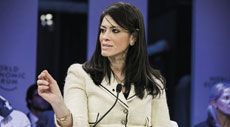 |
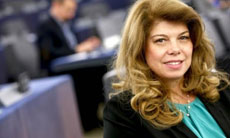 |
| Rania A. Al-Mashat, Minister of International Cooperation, Egypt |
Iliana Iotova, Vice President of Bulgaria, Bulgaria |
In other panels, Ibrahima Guimba-Saidou, Minister and Special Advisor to the President of Niger, Niger explained how they were looking to a citizen-centric approach around service delivery informed by technology: this will strongly aid Niger’s goal of meeting the UN/SDGs. And Rania A. Al-Mashat, Minister of International Cooperation, Egypt affirmed that the effects of the COVID pandemic would have been more difficult for Egypt if not for the comprehensive reforms on taxes, budgets and foreign exchange that the country undertook.
South Asia has also been battered by the COVID-19 pandemic as well as occasionally by geo-political tension: but they offer hope for the world if they succeed in mutually beneficial growth. The SAARC’s (South Asian Association for Regional Cooperation) has a strong role to boosting regional integration. Shariar Alam, Minister of State for Foreign Affairs, Bangladesh noted every 4th global person is a South-Asian but in the South Asian Association for Regional Cooperation (SAARCs) its 8 nations represent only 2% global GDP but 40% of world’s poorest. Lasting peace in the region has been illusive even though SAARCs members wish to openly counteract terrorism. Supporting these data, Pradeep Kumar Gyawali, Minister for Foreign Affairs, Nepal stated the region has high potentials for the future, though presently depressed by the on-set of COVID. And Abdullah Sahid, Minister of Foreign Affairs, Maldives noted the struggles of the Maldives tourist industry that is a big contributor to its GDP, as are reduced remittances (cut by the global COVID lockdowns). To overcome some of the unrest he noted communications with citizens is very important to get the peoples to realize the enormity of COVID’s reach.
The aftermath of the COVID-19 pandemic will take years to clear – partly as trust between citizens and their governments has faltered, as has the trust between former partners along supply chains. Delegates discussed potential solutions for disruption and proposed new ‘new-normal’ routes to sustainable actions on global and local levels. Above all, suggested Roshni Nadar Malhotra, Chairperson, HCL Corporation Ltd., India global businesses are ready to cooperate with the public sector and international organizations to confront and solve the COVID-19 pandemic and to rebuild our economies.
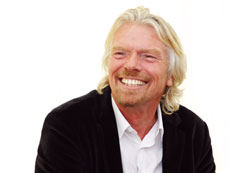 |
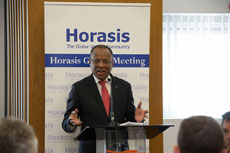 |
| Richard Branson, Founder, Virgin Group, United Kingdom |
Ulisses Correia e Silva, Prime Minister, Cape Verde |
About Horasis:
Horasis – a global visions community committed to inspiring our future – provides a unique platform for companies from emerging and developed markets to globalize their organisations. In addition to the Horasis Extraordinary Meeting, Horasis hosts the annual Horasis Global Meeting, Horasis India Meeting, Horasis China Meeting, Horasis Asia Meeting, as well as the annual gatherings of the Horasis Visionary Circle.
 |
| Juan Guaidó, Interim President of Venezuela; President of the National Assembly of Venezuela, Venezuela |
Technology Partner:
Run The World











